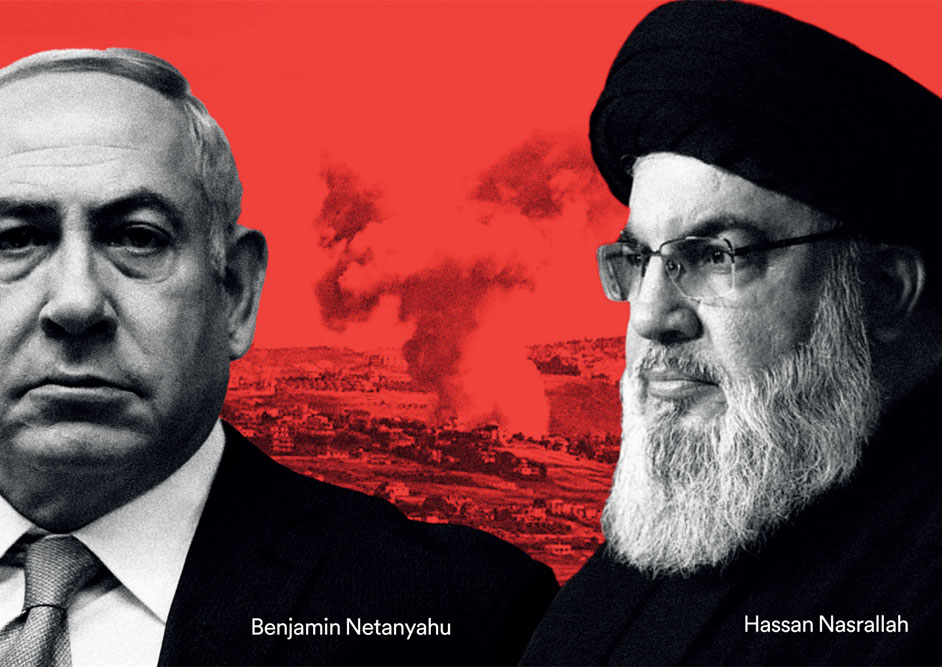
According to Israeli intelligence, Nasrallah had been under surveillance for an extended period, with his movements carefully monitored by Israeli forces. The operation came after intelligence suggested that Nasrallah planned to relocate, which would have complicated future efforts to target him. Israeli officials, including those from the Mossad, reportedly viewed this as a crucial opportunity to act before the window of opportunity closed. Netanyahu’s decision to greenlight the operation reflects his administration’s broader strategy of preemptive action against adversaries aligned with Iran.
Hezbollah, the militant group based in Lebanon, has long been considered a critical arm of Iranian influence in the region. Under Nasrallah’s leadership, Hezbollah has grown into a formidable force, both militarily and politically, capable of challenging Israeli interests. His assassination, therefore, marks a bold move that could have far-reaching consequences for regional security dynamics.
This targeted strike is part of a broader Israeli campaign to disrupt and degrade the capabilities of Iranian proxies across the Middle East. Netanyahu has repeatedly emphasized that Israel views Iran and its allies as the principal threats to its security, particularly in Syria and Lebanon. Israel has conducted hundreds of airstrikes in these areas over the past few years, primarily aimed at preventing the transfer of advanced weaponry to Hezbollah and thwarting Iranian entrenchment near its borders. However, the killing of Nasrallah represents a significant escalation of this strategy, as it directly targets the leadership of one of Iran’s key allies in the region.
The aftermath of the operation has sparked a wave of reactions, particularly within Lebanon, where Hezbollah’s supporters took to the streets in anger, denouncing the attack. While Hezbollah has not officially confirmed Nasrallah’s death, sources close to the organization indicate that internal discussions are already underway regarding his potential successor. Analysts suggest that Nasrallah’s demise could create a power vacuum within Hezbollah, leading to internal divisions or even infighting as the group navigates its leadership transition. However, others believe that Hezbollah’s well-organized structure will allow it to adapt quickly, ensuring continuity in its operations.
The Israeli government, meanwhile, has remained tight-lipped about the details of the operation, refraining from offering any official statements about Nasrallah’s death. However, senior Israeli defense officials have privately expressed satisfaction with the outcome, viewing it as a major blow to Hezbollah’s command structure and a victory in the broader effort to curb Iranian influence. Netanyahu, who has been a staunch critic of Iran’s nuclear ambitions and its regional activities, has used this operation to further his narrative of Israel as a defender of regional stability against Iranian aggression.
The ripple effects of Nasrallah’s killing are expected to extend beyond Hezbollah. Iran, as Hezbollah’s chief patron, is likely to react strongly, with potential reprisals against Israeli targets being a key concern for Israeli military planners. Tehran has yet to issue a formal statement, but experts believe that the loss of Nasrallah will be perceived as a serious setback to its regional ambitions. Some have speculated that Iran could seek to retaliate through other proxy groups across the region, including in Iraq, Syria, and Yemen, where it maintains a network of allies and militias.
While Israel has grown accustomed to retaliatory attacks from Hezbollah following significant operations, the scale and scope of any response this time remain uncertain. Hezbollah’s ability to mount a large-scale retaliation has been constrained in recent years due to Israeli airstrikes and internal challenges within Lebanon. The country’s ongoing economic crisis, coupled with the aftermath of the Beirut port explosion, has weakened Hezbollah’s domestic standing, making it more difficult for the group to justify open conflict with Israel at this time.
Nevertheless, the possibility of a confrontation remains, and both sides appear to be preparing for potential escalation. The Israeli military has reportedly raised its alert levels in anticipation of possible rocket attacks from Hezbollah or other Iranian-backed groups. Additionally, there are concerns that the operation could spark wider tensions in the region, drawing in other players such as Syria or even Russia, which maintains a military presence in the area.
This targeted killing also comes at a time when regional power dynamics are shifting, with several Arab nations moving toward normalization of ties with Israel. The Abraham Accords, signed between Israel and several Gulf states, have altered the regional landscape, creating new alliances and isolating Iran further. Netanyahu’s decision to act decisively against Nasrallah could be seen as a signal to these new partners that Israel is committed to defending its interests and countering Iranian influence, even if it means taking significant risks.
Topics
Live News
